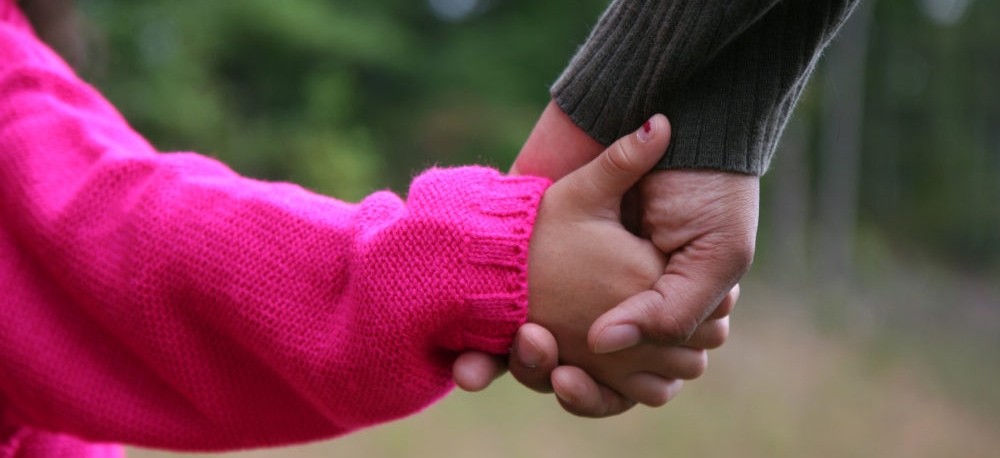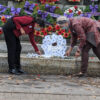
KJIPUKTUK (Halifax) – “How many more children are going to be left behind before we will make it our collective priority to end child poverty,” JoAnna LaTulippe-Rochon asks in a presentation on child poverty in Cape Breton she gave yesterday to the Community Services Standing Committee.
LaTulippe-Rochon is the executive director of the Cape Breton Family Resource Centre, a wonderful organization that supports low income and isolated parents of all ages across Cape Breton Island.
The picture she paints of people living on welfare and on minimum wage is devastating, although no doubt sadly familiar to many of our readers. She speaks of parents living in rat-infested homes, skipping meals in order to feed their children, even offering sexual favours in exchange for transportation to the grocery store or to get their children to medical appointments.
Good morning, everyone, and thank you for the opportunity to speak today to bring you a perspective on child poverty in Cape Breton.
Family Place is an organization that’s been up and running for about 27 years, and I’ve been there for that full period of time. we’re working with about 3,573 individuals across Cape Breton Island, and our programs and services are very focused on trying to reach the most vulnerable families.
There’s so many things that could and should be said when one has an opportunity to come forward in a forum such as this, and I thought that after a few quick statistics that most likely are familiar to you, I’d spend most of my five minutes sharing the impact of poverty, to paint the picture, if you will, of what child poverty means for those today that we’re working with and aware of on Cape Breton Island.
We certainly know that children don’t earn income. They live in poverty because their parents are struggling to survive, given the low income circumstances that they are experiencing. Statistically, when we look at figures from the Canadian Center for Policy Alternatives, we recognize that 36.6% of the children live in poverty within the federal riding of Sydney Victoria and there’s 26.9% of children living impoverished lives within the Cape Breton Canso riding, from a low of 17.2% of children living in poverty in our Cheticamp area to a high of 73.2% in Eskasoni. Too many children doing without the very basics that others may take for granted as we live, work and play on our beautiful island.
Nova Scotia has the third highest child poverty rate in Canada, the highest rate in Atlantic Canada as per the last child poverty report. I’m not sure but I think perhaps we allow the situation to continue, because we’re not familiar with the impact of poverty on our young families and diving into the heart of that matter is really quite uncomfortable and very heartbreaking. But it’s my belief that until we understand the face of poverty, until we understand it in very real terms, we may not be inspired to do what I recognize, is a very difficult work to eradicate its existence.
So here are some examples of the work that we’re involved with. I feel like it’s a double blind study now because they were certainly identities protected before and doubly protected now to be overly cautious and respectful of people’s privacy.
We are working with a rural dad whose children were removed from the care of their mother while he himself was incarcerated. Being back in our general population, now he’s trying to get a home ready for his children to return. As he recognizes the need for appropriate furnishings and other child related needs. He’s attempting himself to live on a single person’s income assistance. He’s often hungry when he comes to our programs, we recognize that what we’re serving as a snack is actually a meal for him.
He’s made significant progress and happy to report that the ongoing plan from a child protection perspective is for the family to be reunified, and for his children to come back. He’s very focused on that, yet very conscious that he doesn’t want to give any sort of reason, if you will, for our child welfare folks to be uncomfortable or to change their mind. So with that he’s doing without food. And he’s doing without oil to try to save every penny he can to purchase things that he needs for his children. And this is the only way that he has found to access funds to slowly get what his young family needs.
There was a reference prior to transportation, which is causing very sad situations, not only with lacking public transit on our island, but certainly when we hear multiple participants reporting that in fact, they feel forced to perform sexual favors, to pay for trips to the grocery store, or to get their children to medical appointments. When you live in rural communities, transportation issues are very limiting and they’re certainly not easily resolved.
Oftentimes, and certainly this time of year, we have families dealing with rodent issues.It gets so bad for one of our families that rats actually climbed onto counters and ate the food that was a defrosting for the family meal. When we connected with the family to discuss the issue, we learned that the landlord was not willing to send an exterminator in. The landlord had had a previous bad experience in the year prior, and so was not going to pay exterminators to come in. So we stepped in to cover the cost. The exterminator reported to the family and through the family to us that there were several generations of rats living in that apartment building. Her child gets so depressed with the living arrangements that they don’t want to go to school. The child went to school and reported to a guidance counselor that he was feeling suicidal and ended up moving out of the family home to live with the neighbor. The mother is devastated, feeling totally unable to provide care for her children.
We can talk about Jane, who’s a mother of three who is living separate from her partner and her children. She has access visits with the middle child and she’s challenged to try to understand the difficult physical and emotional road her youngest child, along with other transgender people, have to travel to become the person they always knew they were. Jane suffers with mental health issues, which leaves her unable to consistently maintain, or at times even leave her very small apartment. And at times when her mental health spirals out of control. She’s unable to maintain the required contact with service providers and this results in reduction or elimination of benefits that are normally accessible to her. The family often experiences food insecurity. The loss of internet and the lack of minutes on a telephone exasperate a situation. She’s experiencing much by way of parental stress, strife and confusion, in a situation that over and over again increases her own level of mental unwellness.
We can go on to other generations and talk about Denise as a grandmother. We have lots of grandparents who provide primary care for grandchildren. In her situation, a number of the children are still in school, one has identified special needs, and she’s on a fixed income being a senior. She separated from a partner, lives in a small rental unit, and doesn’t always have access to transportation. Things like school supplies and clothing for growing children are huge challenges for her. Through our program experience with her we learned that she often goes without food, and without the very basics of things that she would need to make more available for the children she cares for. She came to be the primary caregiver of her grandchildren after a family separation related to unaddressed addictions issues.
Joseph is a father and a primary caregiver of his two young children, and he also parents a third child who he understands to need such support. Addictions have played a significant role in the breakup of his partnership, and continues to have an impact on the children’s lives. He works full time, but he works full time for minimum wage, and his wages just don’t meet the needs of his family. So he finds himself dependent on the financial help of his aging parents, support that they can little afford, to give. Food insecurity, inconsistent access to reliable transportation, the cost of educational recreational opportunities are just some of the poverty related challenges that Joseph faces as he puts forward his best efforts to support his family.
Recognizing that I was invited here today to specifically speak to our Cape Breton experiences, in no way do I want to diminish the experiences of children and their families from all across Nova Scotia. While this is a problem perhaps heightened in Cape Breton, it isn’t one that stops at the Canso Causeway.
How many more children are going to be left behind before we will make it our collective priority to end child poverty? Think about things like a living wage, food security, accessible, affordable, appropriate housing, quality childcare, access to internet, telephones, public transit, and focus on support for Indigenous communities. These are places to begin, or places where we must continue our efforts if we really are focused on doing right by our youngest citizens.
Thank you.
See also: One in four kids: After 30 years there is hardly a dent in Nova Scotia child poverty




Frustratingly, all of this it too true. With regard to the income assistance part of the equations, we’re more than five years into the so-called “transformation,” and little has changed on the ground, where recipients and the system intersect. The focus has shifted from this reality to the pandemic, understandably, one supposes. Let us recall it, though. Granted, some work has been done, some positive changes made, and some within who really do care, to be fair, but little of substance where one, as a recipient, or “client,” meets the Department. From rates which are inadequate to say the least, to ill-treatment of some by case workers who are then not brought to book, to the maze of bureaucratic …ahem… requirements… which all but demand Ariadne’s thread to navigate, too much remains to be done. Meanwhile, individuals, families, and most sadly, children, suffer.